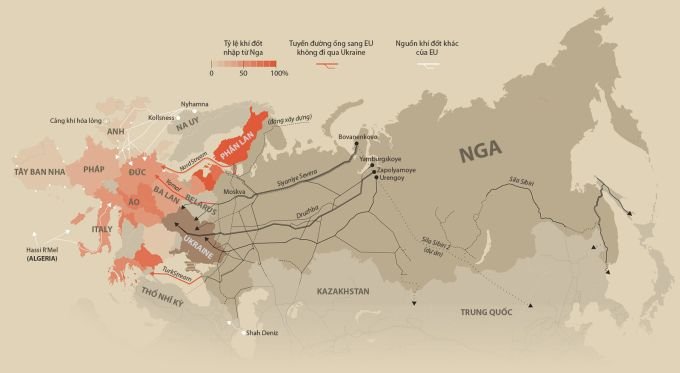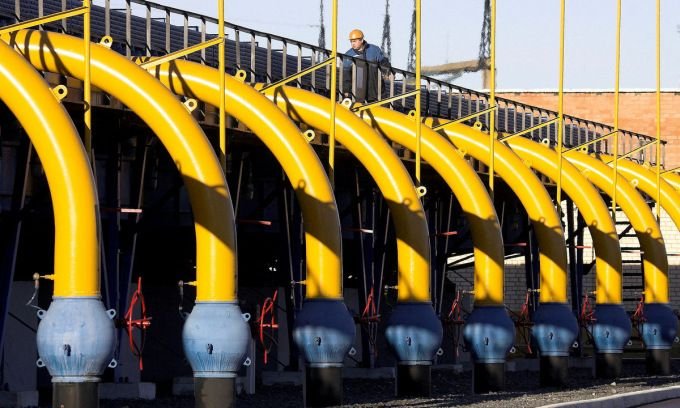The British government today announced that it will gradually reduce imports of Russian oil and petroleum products before the end of this year, affirming that this measure will give the market and businesses enough time to find alternatives.
`The government will also coordinate with companies through the Petroleum Working Group to support them in finding new sources of supply,` British Business and Energy Minister Kwasi Kwarteng said.
The European Commission (EC), the executive agency of the European Union, also announced the goal of reducing dependence on Russian gas with measures such as finding new gas supplies and boosting reserves for next winter.
`By the end of this year, we can replace 100 billion cubic meters of gas imported from Russia, equivalent to two-thirds of the current level. This will end over-reliance and provide more options,`
Part of the gas pipeline between Russia and Europe in 2006. Photo: Reuters.
The proposal calls for filling 90% of gas reserve capacity by September 30 this year, compared to the current 30%.
The announcement was made in the context of the US imposing a ban on oil imports from Russia, a step considered too risky for Europe.
Dependence causes many EU countries to not respond to calls from the US and Ukraine to embargo the Russian energy sector.
The proposal was made by the EC before the meeting of EU leaders to discuss a plan to cut energy relations between Europe and Russia in the long term.
Russia launched a military campaign in Ukraine from February 24, with the goal of `demilitarization and de-fascization` of Ukraine.
Oil prices on March 7 soared to 139 USD/barrel, the highest level since 2008. Oil prices on March 8 were 122 USD/barrel.
Russian Deputy Prime Minister Alexander Novak on March 7 threatened to cut off gas supplies to Europe, warning that oil prices could rise to 300 USD/barrel if Europe banned energy imports from Russia.

Pipelines transport Russian gas to Europe.










